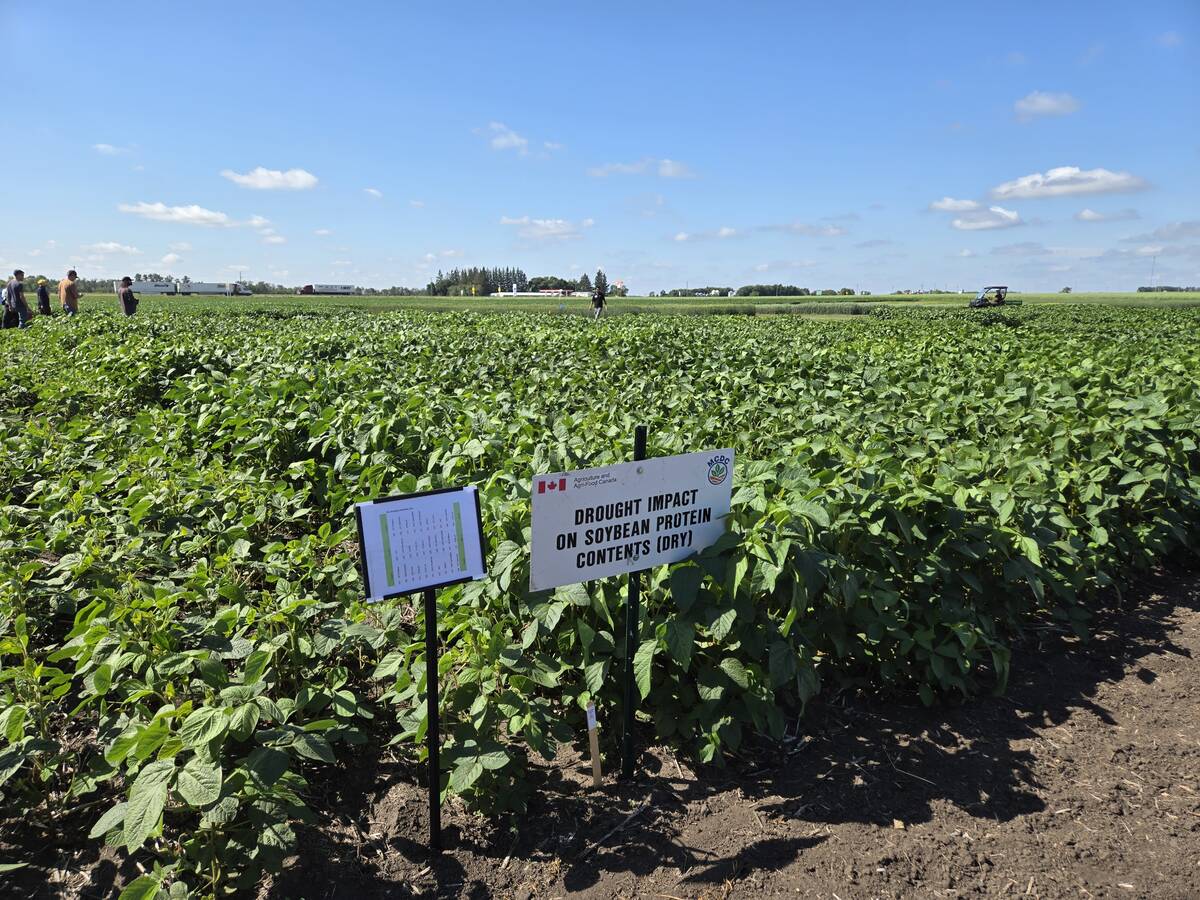REGINA – Twelve prairie farm groups say Canada’s grain transportation system must be deregulated quickly.
The Prairie Farm Commodity Coalition released a nine-point proposal for transportation and car allocation reform in Regina two weeks ago.
“The need for action is urgent and compelling,” said coalition chair Greg Rockafellow of Crossfield, Alta.
He told reporters that a highly regulated, centralized system no longer fits today’s marketplace.
“Shippers and customers both need the flexibility that only a decentralized, market-oriented system can provide,” he said.
Read Also

Carberry field day looks for agriculture solutions
Manitoba farmers explored research solutions for resilient crops, perpetual agronomic issues and new kinds of agricultural products at a field day at the Manitoba Crop Diversification Centre in Carberry on Aug. 6.
The coalition’s Blueprint for a Commercial, Least Cost, Logistics Management System is designed as a discussion paper, Rockafellow said, and the group hopes to meet with industry to refine the contents.
Contract required
Among the proposals is a call for an open market and open U.S. border. The Canadian Wheat Board would not be involved in transporting grain, but would have to sign a contract with the railways, just like other shippers.
The coalition wants the grain freight rate cap removed and shippers to negotiate rates with the railways. The railways’ power would be controlled by reducing dependence on rail through maximizing competition and value-added, strengthening shipper protection within the Canada Transportation Act and dispersing the federal government’s 13,000 hopper cars among shippers, railways and car leasing companies.
“The ownership of the cars is not going to give you the access to the rail lines that you need in getting your product to port,” Rockafellow said.
“We believe it’s the regulation and legislation and the rules of the game that we have to deal with and simple ownership is not going to give you those things.
“If we get these market forces to pull the grain from export position into the value-added, into the livestock sector, into a dual market scenario, then those market forces will do that for us.”
Sinclair Harrison, chair of the Farmer Rail Car Coalition, a group of farm organizations working to secure ownership of the cars by farmers, said the group he represents does not agree the hopper car fleet should be separated into blocks.
“That doesn’t sit well with us,” Harrison said. “In order to get influence in the future we have to make a substantial investment and that’s 13,000 cars.”
Saskatchewan Wheat Pool president Leroy Larsen said he wasn’t surprised by the group’s blueprint.
He said it is the same group that called for a change in the method of payment.
“Well, now we’ve got that and all of a sudden they don’t like the new world we’re living in,” Larsen said.
He is concerned by the proposal to remove the rate cap because there is no competition between railways now, yet the Prairies are dependent upon them.
“When you don’t have any competition in the transportation of grain, the negotiations are all one-sided,” he said. “We need regulation in lieu of competition.”
Other points in the blueprint include:
- Creating a market for available freight, leading to a futures market where freight could be booked in advance and traded.
- Allowing shippers to access cars directly with the railways for all grains.
- Train run programming to be done by the railways.
- The Car Allocation Policy Group should be an interim, transitional body to help the grain industry move to a deregulated transportation system.
The coalition includes the Western Canadian Wheat Growers, Western Barley Growers, Canadian Canola Growers and Flax Growers of Western Canada.















